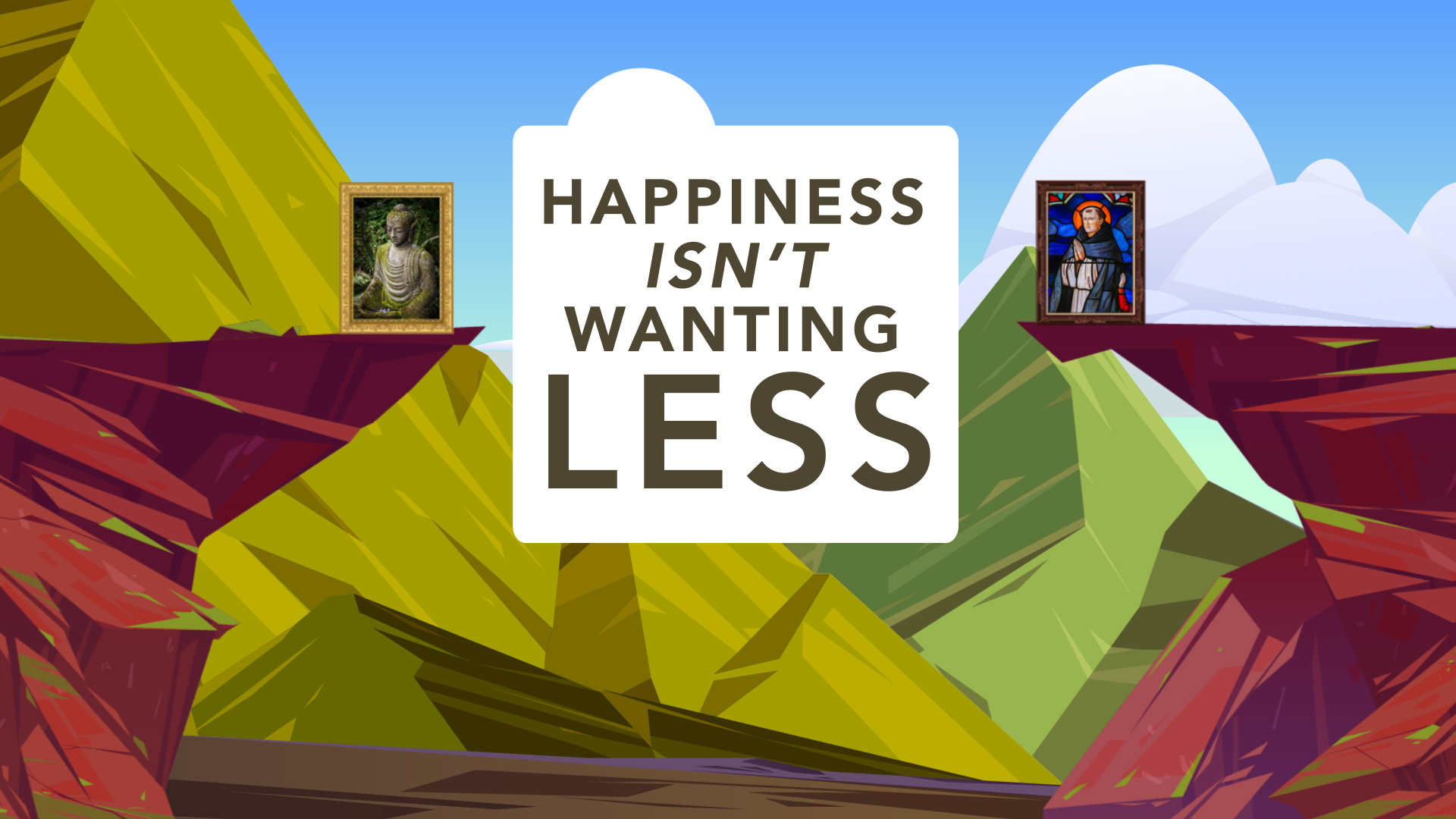Is Religious Freedom Just a Way to Protect Privilege?
What Would You Say?
You’re in a conversation and someone says, “Religion has been used to justify all kinds of bad things, like war and slavery. Claiming religious freedom is just about protecting privilege.”
What would you say?
Sometimes people think that standing up for religious freedom is really about clinging to power and privilege. They assume that Christians who defend religious freedom just want to protect their own dominance in society. But is that really true? Is religious freedom just a way to protect privilege?
First, from the beginning, Christianity has taught that all people have inherent and equal dignity.
Second, the idea of religious freedom also comes from the belief in the imago Dei.
Third, religious liberty, by definition, is equalizing. It is freedom for all people, not just for one group.
- Transcript
- More Resources
- Watch More
You’re in a conversation and someone says, “Religion has been used to justify all kinds of bad things, like war and slavery. Claiming religious freedom is just about protecting privilege.” What would you say? Sometimes people think that standing up for religious freedom is really about clinging to power and privilege. They assume that Christians who defend religious freedom just want to protect their own dominance in society. But is that really true? Is religious freedom just a way to protect privilege? No. And here are three reasons why. Number 1: From the beginning, Christianity has taught that all people have inherent and equal dignity. Christianity teaches that all people carry God’s image, or the Imago Dei. That belief in the Imago Dei is the foundation of a Christian teaching that turned the ancient world upside-down. It put an end to the barbaric gladiatorial games, curbed the widespread practice of infanticide, and changed the way society thought about slavery. Until the early Church, everyone in history accepted slavery as a fact of life. But the idea of the Imago Dei led Christians, most notably the Apostle Paul, to realize that all people are created in God’s image and are worthy of equal dignity. Very early in the history of Christianity, Christians took a stance against slavery. Christian communities pooled money to buy slaves and set them free. In a 4th century letter from St. Augustine, we read of a group of Christians who freed an entire shipful of slaves! In the Middle Ages, the Christian king Clovis married Matilda, a former slave, and the two issued the first anti-slave laws in history. Any slave who entered the kingdom of Clovis and Matilda was considered free. The Christian philosopher Thomas Aquinas wrote that slavery violated the law of nature. During the Renaissance, four popes openly condemned the slave trade. In both England and America, the abolition movement was led by Christians. The same can be said of Christian pastors like Martin Luther King Jr., in the Civil Rights movement. Today, many of those at the forefront of the struggle to end sex slavery and human trafficking are Christians. While it is true that certain groups in the Civil War South tried to use Bible verses to support race-based chattel slavery, their wrong interpretation of those verses was well outside the mainstream of Christian history. Because of Christianity’s teaching about the Imago Dei, Christian communities have worked from the beginning to protect the vulnerable. Number 2: The idea of religious freedom also comes from the belief in the imago Dei. Just as Christianity brought about the end of slavery, it also uniquely promotes the idea of religious freedom. Both teachings come from belief in the image of God and the inherent dignity of each person. It is impossible to separate respect for the human person from respect for religious freedom. Christianity asserts that all people are worthy of equal dignity. The early Christians taught that people must be free to follow their conscience in matters of religion because each person bears the image of God. That’s what phrases like “free will” or “moral agency” mean. No one can force another person to believe something against their own will. From its opening pages, the Bible teaches that every person is made in God's image. That core understanding of human dignity means Christians must stand for freedom—including the freedom for every image-bearer to live according to their beliefs. Number 3: Religious liberty, by definition, is equalizing. It is freedom for all people, not just for one group. Religious freedom is an application of “the Golden Rule”: “Do unto others as you would have them do to you.” That means if Christians want the freedom to follow God according to their consciences, without undue interference from the government, they must also defend the rights of all others—fellow Christians, Muslims, Jews, Hindus, and even atheists—to peaceably do the same. When true religious freedom is prized by a society, people of every faith win. Take, for instance, the Supreme Court’s recent ruling that upheld the right of Catholic churches in New York state to safely gather during COVID-19. That ruling also upheld the rights of Jewish synagogues to gather. Wins like these don’t just guard against government overreach for one religious group; they ensure everyone’s freedom to peaceably live out their faith. So the next time someone says that standing up for religious liberty is just about protecting privilege, remember these three points: Number 1: From the beginning, Christianity has taught that all people have inherent and equal dignity. Number 2: The idea of religious freedom also comes from the belief in the imago Dei. Number 3: Religious liberty, by definition, is equalizing. It is freedom for all people, not just for one group. For What Would You Say, I’m Brooke McIntire.
"How Christianity Changed the World," by Alvin J. Schmidt
For more on the popes who condemned race-based slavery, see: Pope Eugene IV’s 1435 bull Sicut Dudum; Pope Pius II, letter on October 7, 1462, to a Bishop; Pope Paul III’s 1537 bull Sublimis Deus; Pope Urban VIII, bull on April 22, 1639 to the Collector Jurium of the Apostolic Chamber of Portugal.
For the quote from Thomas Aquinas, see Chapter 10 of "The Religious State, the Episcopate, and the Priestly Office."


